
Fertilizer Industry News Roundup
The first global review of phosphate rock resources since 2010 has reported that technically recoverable reserves should last for more than 300 years.

The first global review of phosphate rock resources since 2010 has reported that technically recoverable reserves should last for more than 300 years.
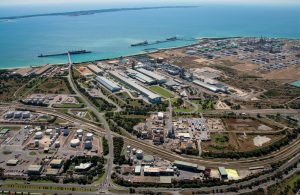
BASF says that its high-pressure regenerative CO2 capture technology HiPACT ® , codeveloped by BASF and engineering partner JGC Corporation will be used by INPEX, one of Japan’s largest exploration and production companies, in its Kashiwazaki Clean Hydrogen/Ammonia Project. This is Japan’s first demonstration project for the production of blue hydrogen/ammonia from domestically produced natural gas, the consistent implementation of carbon capture, utilisation and storage (CCUS) in domestic depleted gas fields and the use of hydrogen for power generation and ammonia production. The project is funded by the Japanese governmental organization New Energy and Industrial Technology Development Organization (NEDO).
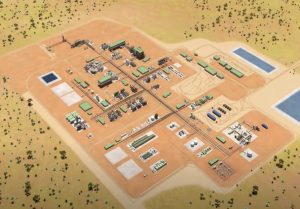
Arafura Rare Earths Ltd has awarded Worley subsidiary Chemetics Inc the contract to install Chemetics CORE-SO2™ sulphuric acid technology at its Nolans Project in the Northern Territory of Australia. The scope of the contract is to deliver the detailed engineering and supply of the sulphuric acid plant plus associated oxygen plant on a lump sum basis. The acid plant at Arafura’s Nolans Project will be designed to meet future emission performance and clean energy transition goals, utilising CORE-SO2’s high turndown capability and the potential to idle the plant while keeping the catalyst warm for extended periods of time, allowing the acid plant to operate with 95% reduced SO 2 emissions when compared to traditional double contact double absorption (DCDA) plants. High pressure steam production within the process will allow CO 2 - free electrical power to be generated. By removing the use of a diesel or natural gas start-up burner, further greenhouse gas emissions will be prevented.
Fulcrum BioEnergy says that it has successfully produced low-carbon synthetic crude oil using landfill waste as a feedstock at its Sierra BioFuels Plant, the world’s first commercial-scale landfill waste-to-fuels plant. Located outside of Reno, Nevada, Sierra will produce approximately 11 million gallons of renewable, low-carbon transportation fuels each year from approximately 175,000 t/a of landfill waste.
Almalyk Mining and Metallurgical Company (AMMC) has awarded Metso Outotec a euro 70 million order for the delivery of two sulphuric acid plants to be built for AMMC’s zinc roasting facility in Almalyk, Uzbekistan. Metso Outotec’s scope of delivery includes the design and delivery of Planet Positive equipment for two gas cleaning and sulphuric acid plants, which will process all off-gases from the zinc roasters into industrial-grade sulphuric acid. In addition, Metso Outotec will deliver utility facilities, such as a common cooling tower system and a common air compressor system.

Yara International has approved a project to partly convert its Pilbara plant near Karratha in Western Australia to green ammonia production.

Topsoe has agreed to supply an initial 500 MW of industrial-scale, solid oxide electrolyser cells (SOEC) to First Ammonia, a US company aiming to produce green ammonia for transportation fuel, power storage and generation, as well as fertilizer, at sites in northern Germany and the southwestern United States. The companies envisage that over the lifetime of the agreement some 5 GW of SOEC electrolysers will be supplied, potentially replacing almost 5 bcm of natural gas and eliminating the emission of 13 million t/a of CO 2 emissions. The facility to manufacture the electrolyser cells will be built in Herning, Denmark, and has recently received a final investment decisions from Topsoe’s board.
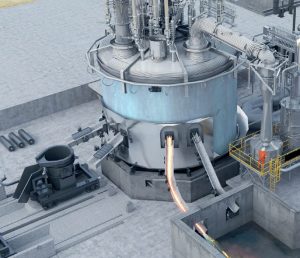
Maire Tecnimont’s innovation and licensing company Stamicarbon has been selected as the licensor for a urea project in sub-Saharan Africa, its first license in the region. Stamicarbon will deliver the process design package for the front-end engineering and design for a 4,000 t/d urea melt and granulation plant. The urea melt plant with a pool reactor will use Stamicarbon’s MP Flash design, a melt concept with improved energy efficiency, entailing a significant reduction of steam consumption. The minimal equipment items result in a significant reduction of the footprint and the overall capital cost of the plant. Less equipment also allows for a reduction in maintenance costs and OPEX savings.
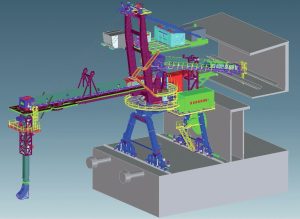
A record rise in gas prices at the end of August triggered a spate of ammonia production curtailments across Europe. These included major shutdown announcements from CF Fertilisers UK, Grupa Azoty, Yara International and others.
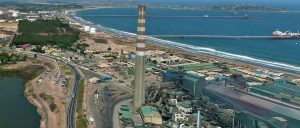
At the end of June a three day strike among workers at Chilean state mining company Codelco paralysed copper output at the world’s largest copper producer. The strike was in protest at the threatened closure of the Ventanas smelter, which was the site of an alleged leak of sulphur dioxide on June 6th. Chile’s environmental regulator subsequently provisional measures for both Codelco and power company AES Chile after numerous people in the nearby towns of Quintero and Puchuncavi in central Chile, including hundreds of high school students and staff, showed signs of sulphur dioxide poisoning. The measures include the installation of a new temperature sensor to measure potential thermal inversions. Both companies have denied responsibility for the leak; Codelco says that its air quality stations recorded normal levels of SO2 during the time of the incident.